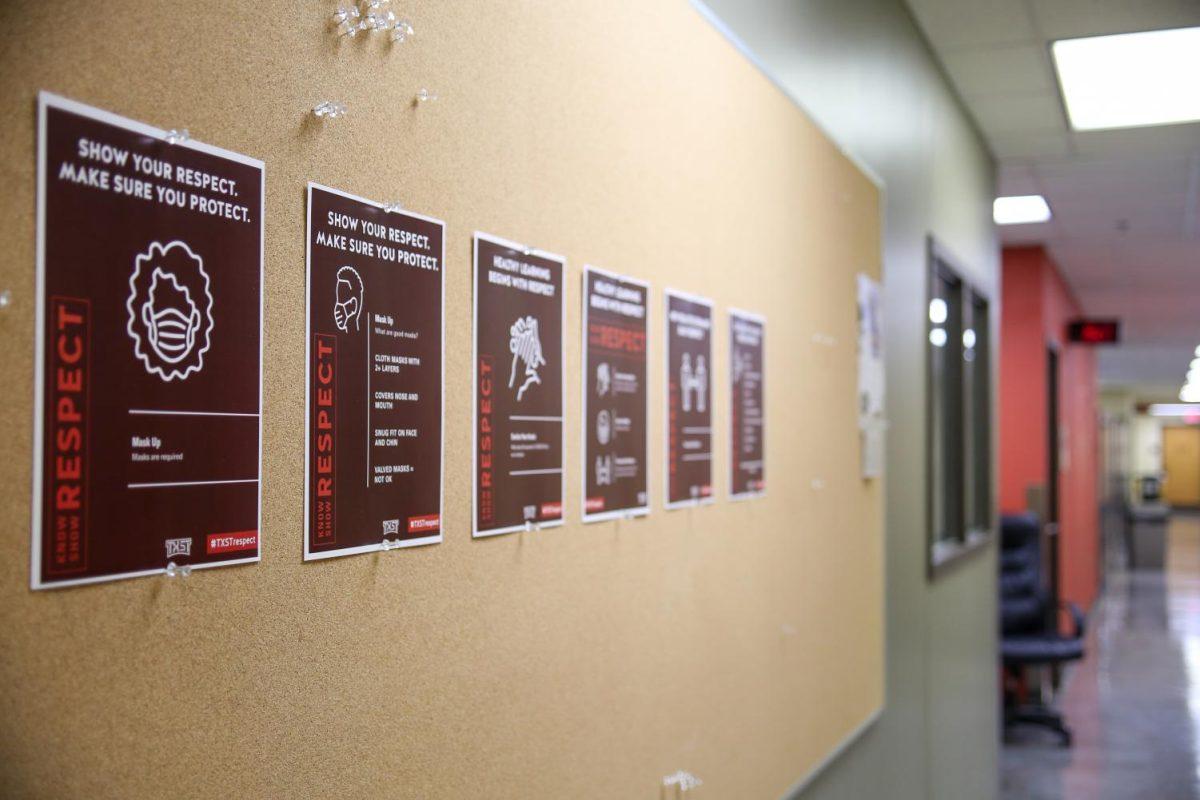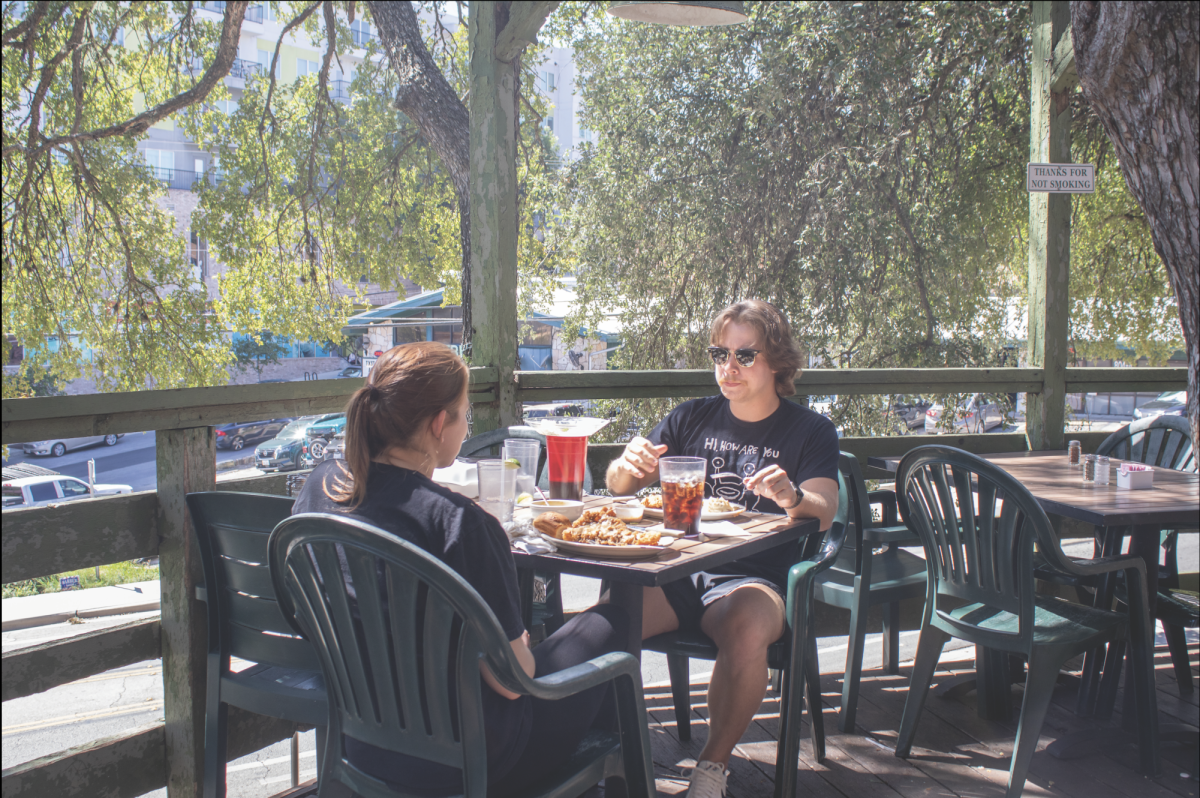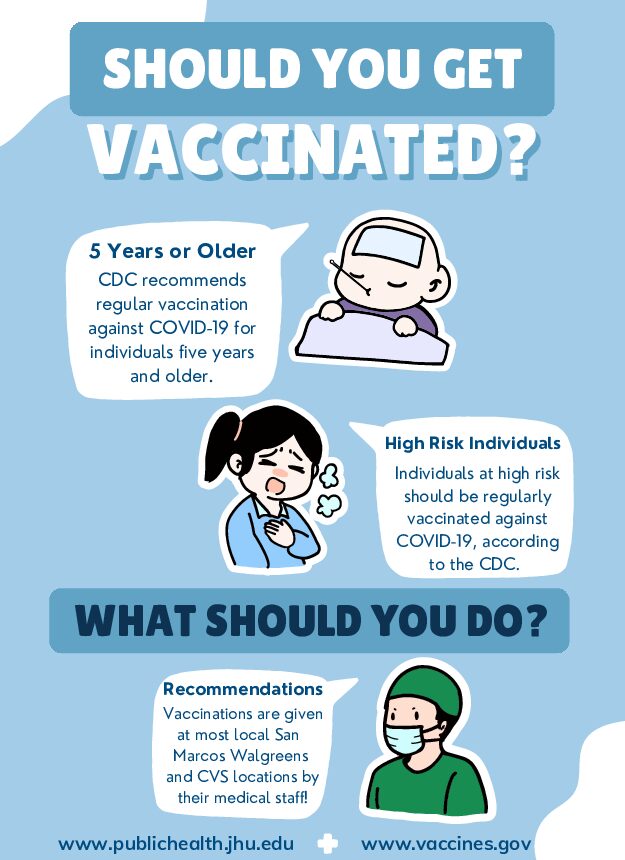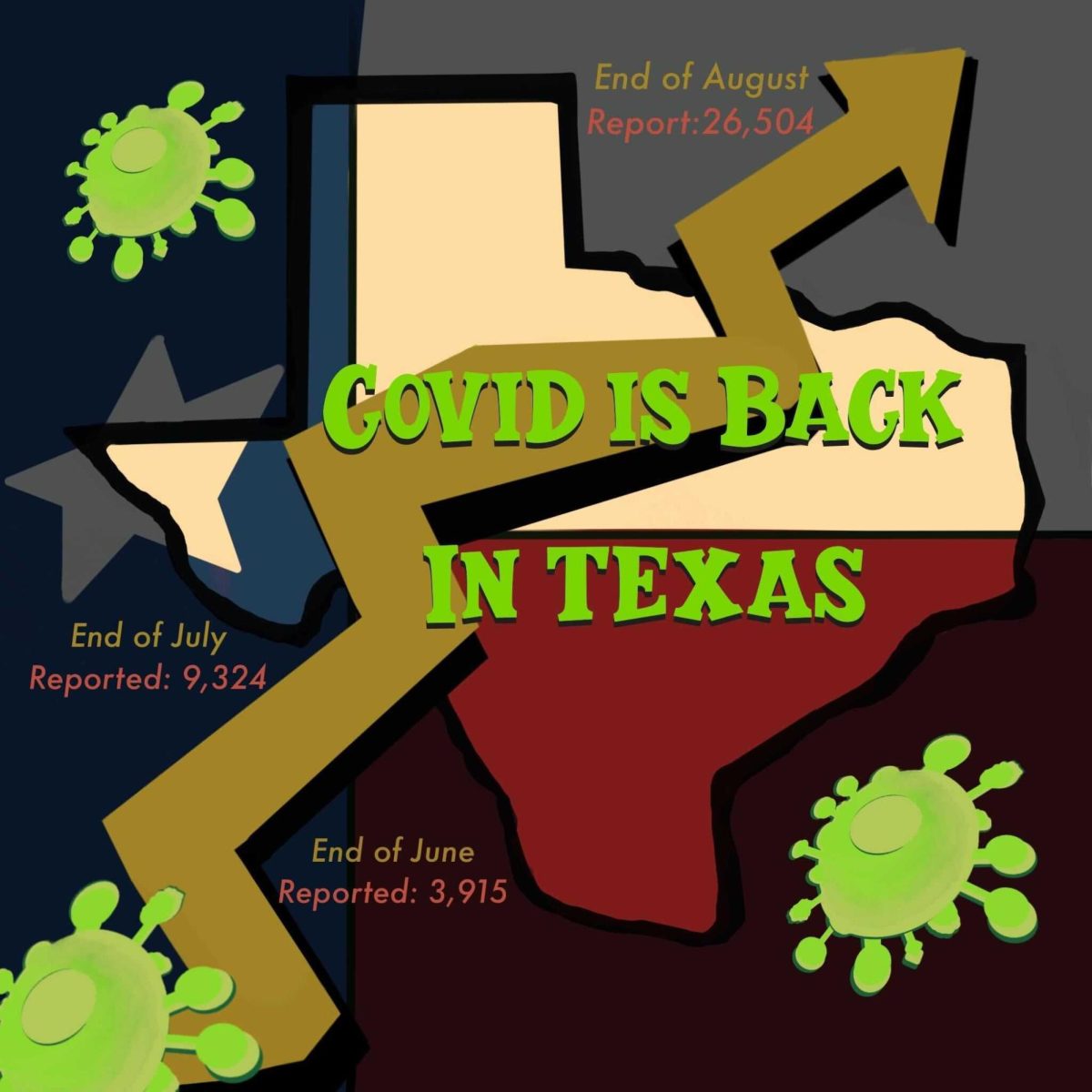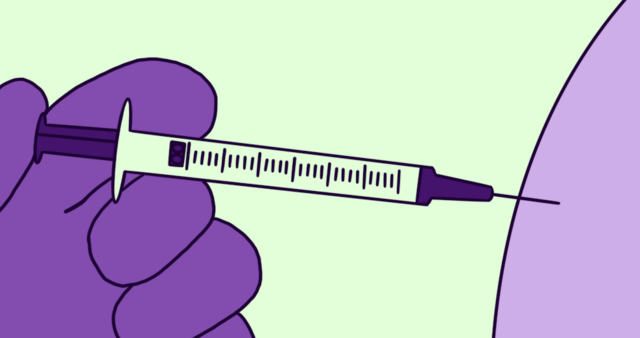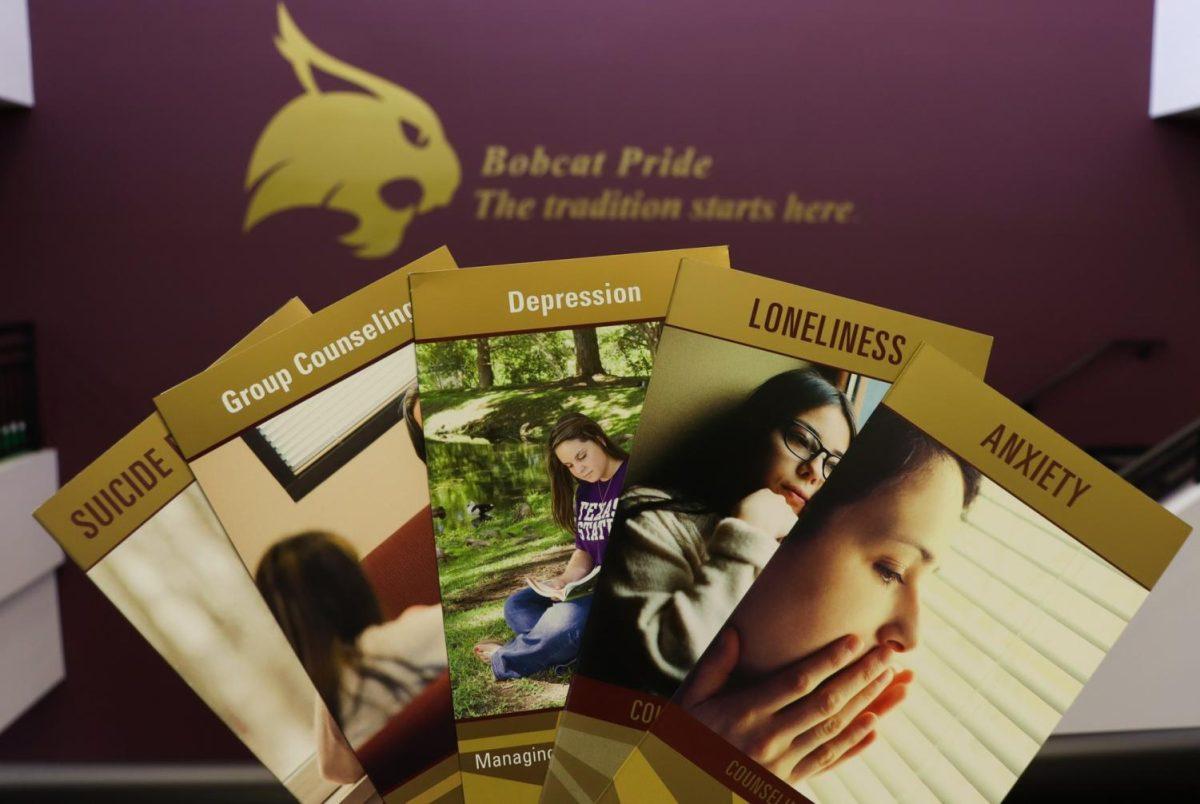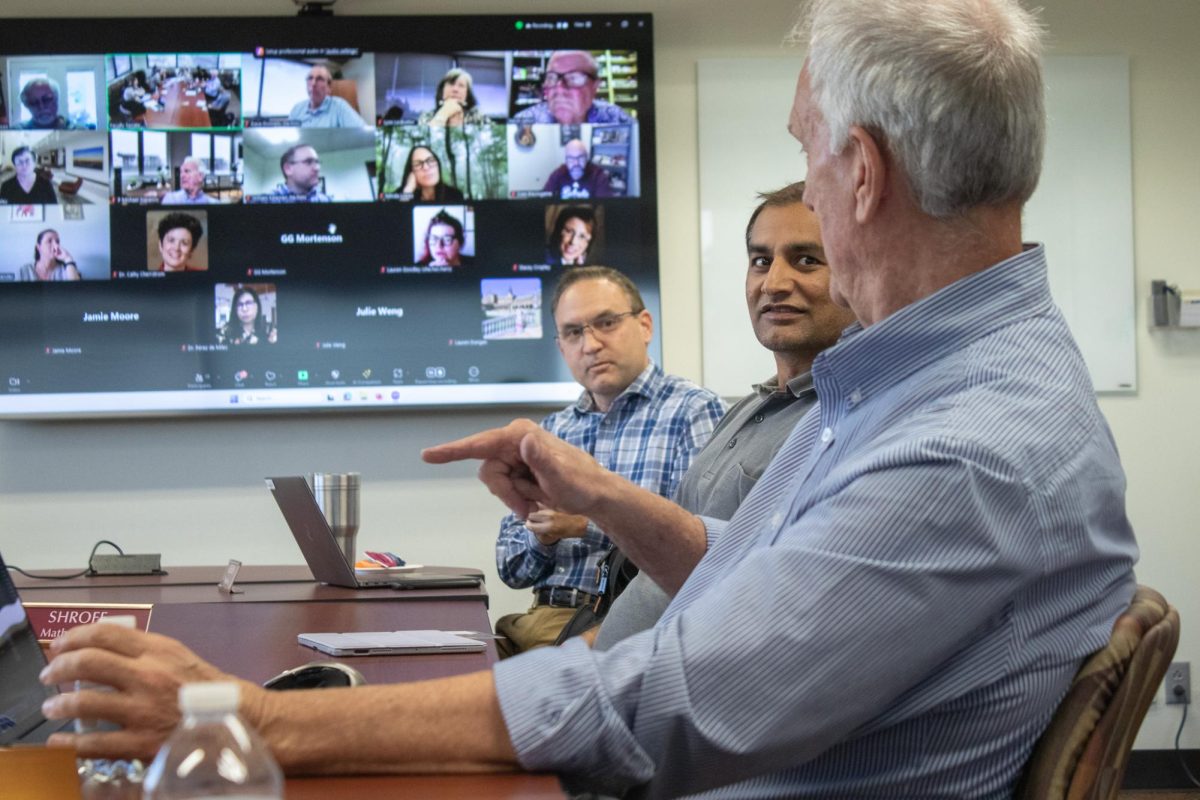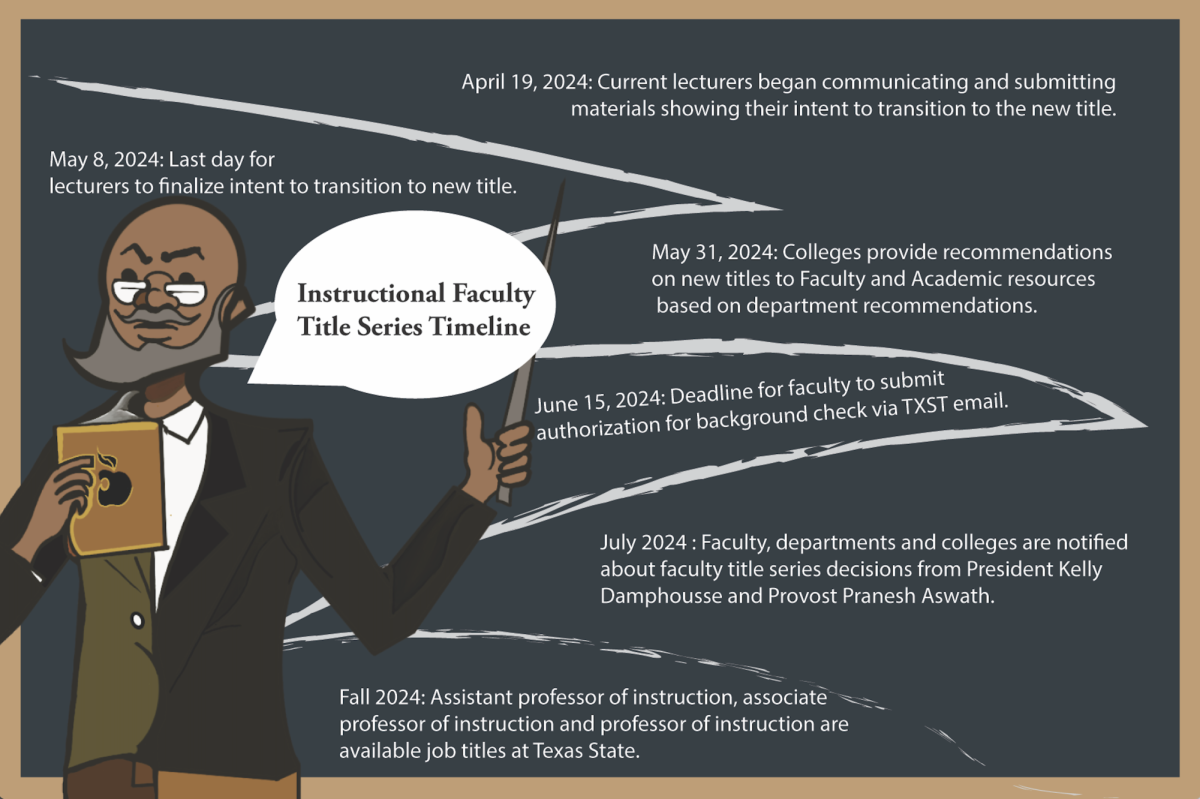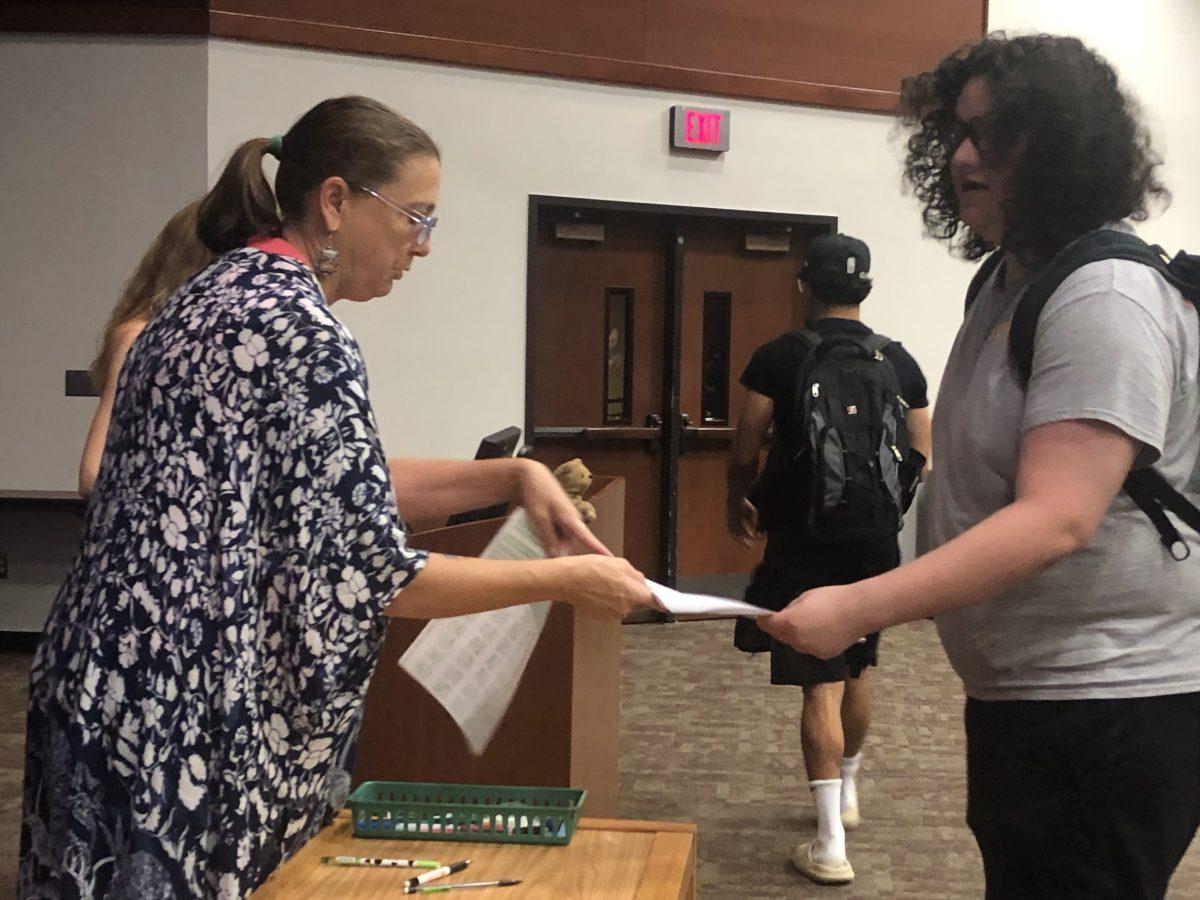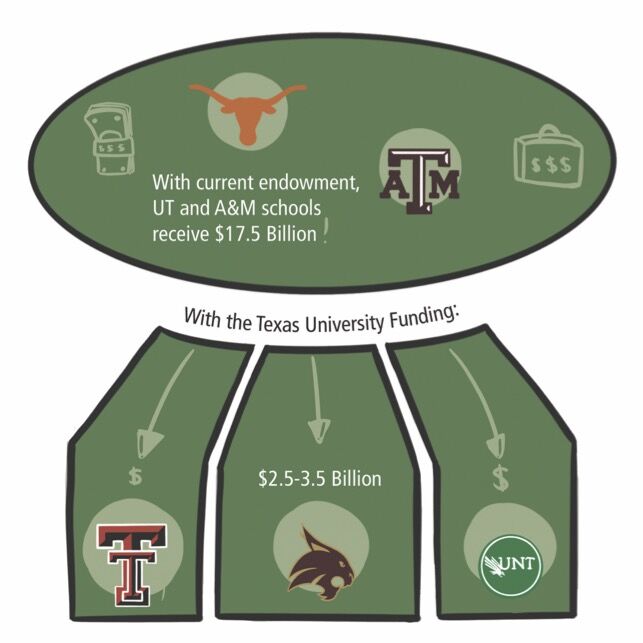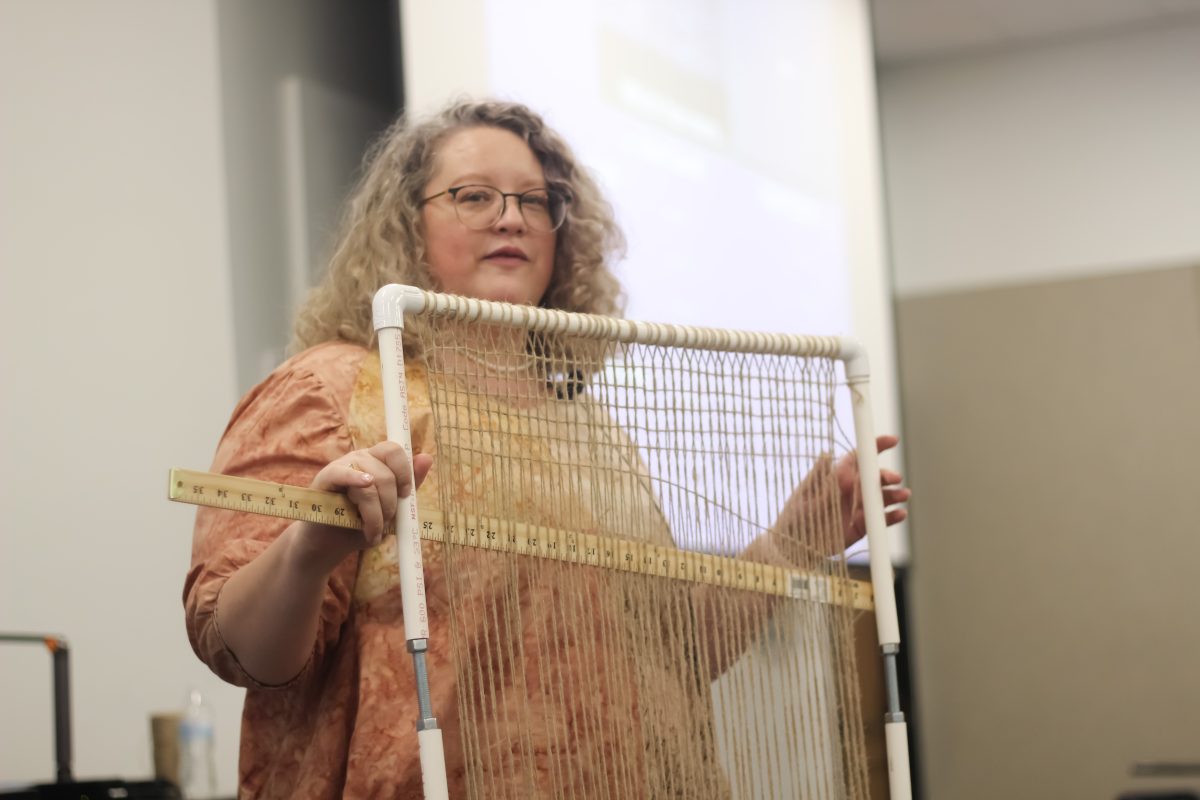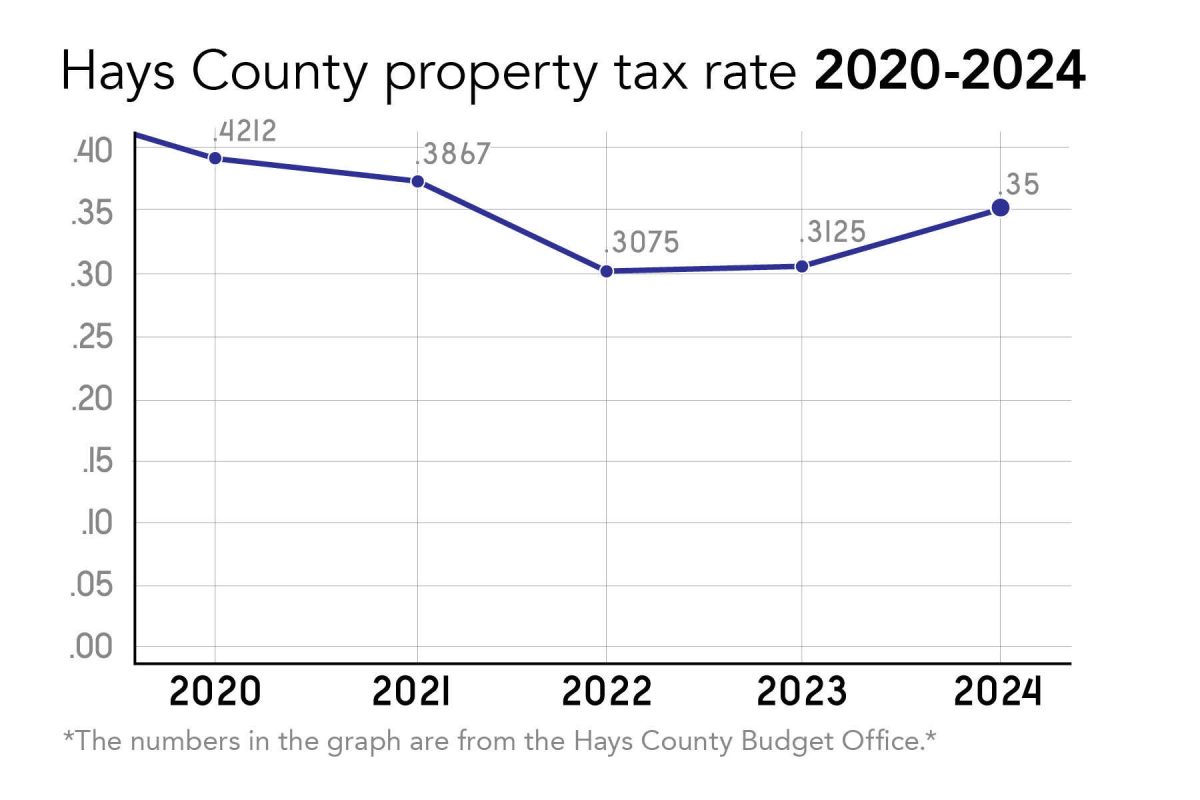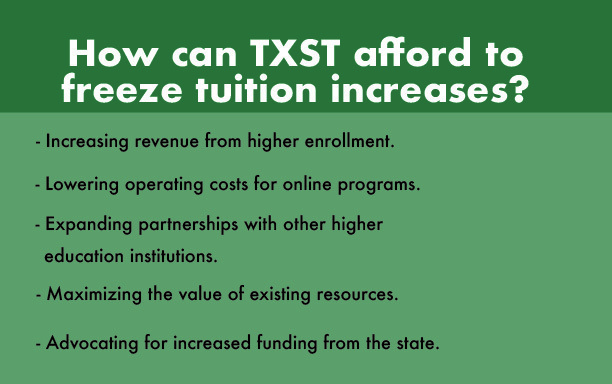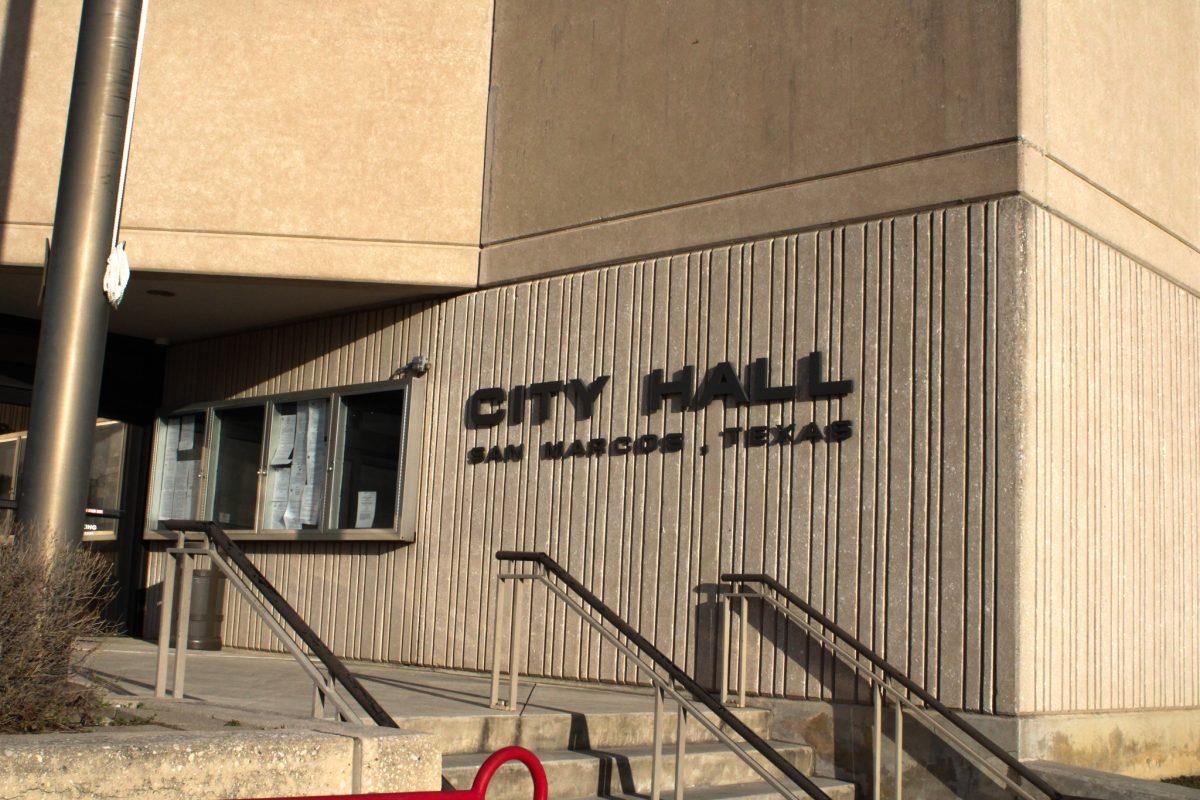Talking to university officials, Texas State’s Faculty Senate questioned the effectiveness of the university’s COVID-19 case reporting and plans for random testing, in its Sept. 2 meeting.
The senate also discussed the campus COVID-19 dashboard, changes to testing, plans for the spring 2021 semester, the tolling of tenure clocks for faculty and an update on the allegations of racist remarks made by men’s basketball Head Coach Danny Kaspar.
An active case count will be added to Texas State’s COVID-19 dashboard to portray a clearer picture of Texas State’s progress in the coming months. Chief Medical Officer Emilio Carranco commented on the university’s reluctance to add a positivity rate to the dashboard, citing fear of the statistic creating an incomplete narrative depending on how it is interpreted.
“Our health center doesn’t test everybody, we test a fraction of the students. And the students that come to us typically are students that are either symptomatic or close contact, so these are folks that are more likely to be positive than the general population,” Carranco said. “So if I use the Student Health Center’s positivity rate, you’re getting a skewed positivity rate.”
When asked why faculty members cannot inform their classes of a positive student COVID-19 test, Carranco said the information is private and confidential, questioning why all class attendees who are not close contacts need to know, “if they are not at risk.”
“We follow the CDC guidance on how you define a close contact. We’ve identified the people who are the most likely to be impacted. All the rest of the people are not likely to be impacted,” Carranco said. “There would be nothing else to say to those people, and telling them that there’s someone in the class that was a positive doesn’t change anything that they would do. What it does do is create unnecessary alarm.”
Carranco says the CDC does not have recommendations for people around close contacts of positive COVID-19 cases. He says no additional measures need to be taken by classmates of a positive case other than self-monitoring for symptoms.
“If I’m around a close contact, what is the risk to me? Well, very, very little, if the close contact is not symptomatic, very little,” Carranco said.
Editor’s Note: National health officials have repeatedly stated that individuals who are asymptomatic, those who show no symptoms, could still carry COVID-19 and spread it to others.
Carranco also discussed the possibility of surveillance testing students and making decisions based on the data from the sample statistic. Surveys would be sent out asking students to voluntarily undergo COVID-19 testing and for consent to have the results be a part of the sample.
“We’re hoping to be able to do a first sample of 400 students over the next week or two,” Carranco said. “We think that sample size is scientifically powerful, given our enrollment at Texas State, and we can use that data to give us a much better sense of what the incidence of COVID-19 is in our own student population.”
Meeting attendees, including senate member Gwynne Ash, raised questions over the possible methodology, as students not following guidelines would be less likely to volunteer for the survey, rendering the sample unrepresentative of Texas State’s actual condition.
“it’s really important to find out if your responders are similar sample to your non-responders. Otherwise, you’re not representing your population,” Ash said.
Carranco says the highest priority for case investigations and sample testing is to look for potential COVID-19 clusters in residence halls, classrooms and departments.
“Every day when we’re doing case investigations and looking at all this data, we’re looking for linkages,” Carranco said. “Do we see evidence that our mitigation strategies are not working? In a classroom, do we see multiple cases? If we investigate and we can’t find any other reason why those people would be positive, we can explain how they could have been exposed. We’re looking for that.”
The senate was alerted that the President’s Cabinet plans to meet Sept. 14 to discuss plans for the spring 2021 semester. A return for the spring semester would look similar to fall 2020 should no big changes to Texas State’s status occur.
Provost and Vice President for Academic Affairs Gene Bourgeois says he wants to move classes to bigger rooms to aid social distancing, and eliminate changes to the billing structure for spring 2021.
The senate debated proposals for a universal tolling of the tenure clock for faculty. It also addressed concerns from meeting attendees over the implications of the plan and the complications COVID-19 may pose to those who have already tolled their tenure clock before the pandemic.
The administration provided an update on allegations of racist remarks made by men’s basketball Head Coach Danny Kaspar to players. According to President Denise Trauth and Vice President for University Administration Lisa Lloyd, the investigation is still ongoing and a report has not been released. The senate also stated Kaspar has not been in contact with players since a formal complaint was submitted June 12. Kaspar is currently on paid leave.
Categories:
Faculty Senate discusses COVID-19 dashboard, testing changes
September 3, 2020
Signs outlining COVID-19 protocols line the walls, Monday, Aug. 24, 2020, in the Joanne Cole Mitte art building.
0
Donate to The University Star
Your donation will support the student journalists of Texas State University. Your contribution will allow us to purchase equipment and cover our annual website hosting costs.
More to Discover


